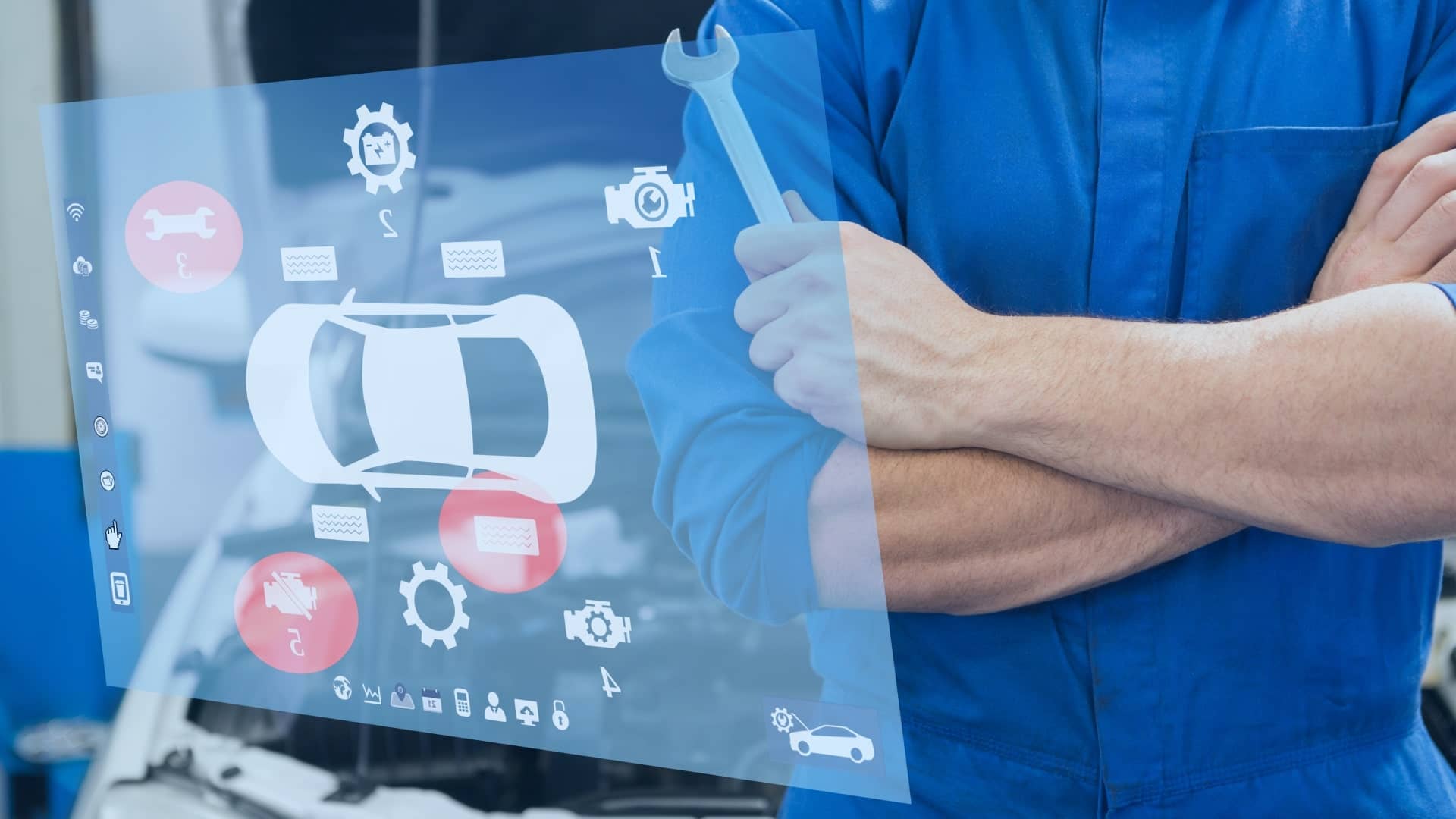What is a Vehicle Health Monitoring System?
In the fast-paced world of automotive technology, the vehicle health monitoring system stands out as a pivotal innovation. This system, integral to modern vehicles, ensures that your car remains in top-notch condition, enhancing safety and efficiency. Let’s delve into what a vehicle health monitoring system is and why it’s essential for your vehicle.
Understanding the Vehicle Health Monitoring System
A vehicle health monitoring system is a sophisticated technology integrated into vehicles to continuously check their performance and condition. This system meticulously monitors various aspects of your vehicle, like the engine, transmission, brakes, and other critical components. It’s like having a personal mechanic on board, dedicated to keeping your vehicle running smoothly.
How Does It Work?
The core of a vehicle health monitoring system lies in its ability to collect data. It uses a network of sensors placed throughout the vehicle. These sensors gather information on various parameters such as temperature, pressure, and fluid levels. This data is then processed by the vehicle’s onboard computer system, which can identify potential issues before they turn into major problems.
The Benefits of Vehicle Health Monitoring
Enhanced Safety
First and foremost, VHMS plays a crucial role in enhancing safety. By continuously monitoring the condition of various vehicle components, these systems can alert drivers to potential problems before they escalate into serious issues. This proactive approach reduces the risk of breakdowns and accidents, ensuring a safer driving experience.
Preventive Maintenance
The adage “prevention is better than cure” rings true for VHMS. These systems aid in identifying wear and tear at an early stage, facilitating timely maintenance. This not only prevents unexpected failures but also extends the lifespan of vehicle components, proving to be cost-effective in the long run.
Improved Performance
VHMS contributes significantly to the optimal performance of a vehicle. They monitor engine health, fluid levels, and other critical parameters, ensuring that the vehicle is running at its best. This leads to smoother rides, better fuel efficiency, and an overall enhanced driving experience.
Convenience and Time-Saving
The convenience offered by VHMS cannot be overstated. With real-time data and alerts, drivers can avoid the hassle of unexpected breakdowns. This saves time and reduces the stress associated with vehicle maintenance, making life easier for vehicle owners.
Environmental Benefits
By ensuring that vehicles are running efficiently, VHMS also has a positive impact on the environment. They help in reducing emissions and fuel consumption, contributing to a cleaner, greener planet.
Why do you need to Monitor Vehicle Health?
Ensuring Safety
First and foremost, regular monitoring of vehicle health is crucial for safety. A well-maintained vehicle is less likely to experience failures that could lead to accidents. For instance, ensuring that brakes and tires are in good condition can significantly reduce the risk of collisions. Regular checks on lights and signals are also vital for safe driving, especially in poor visibility conditions.
Prolonging Vehicle Life
Another key aspect is prolonging the life of your vehicle. Cars, like any machinery, undergo wear and tear. Regular maintenance, such as oil changes, tire rotations, and checking fluid levels, helps keep the vehicle running smoothly. Addressing minor issues promptly can prevent them from escalating into major, costly repairs. Consequently, this extends the lifespan of the vehicle, ensuring it remains reliable for years.
Improving Performance and Efficiency
Monitoring vehicle health also leads to improved performance and efficiency. A well-maintained engine runs more smoothly and efficiently, which can improve fuel economy. This not only saves money on gas but also contributes to a smoother driving experience. Regular maintenance ensures that all parts of the vehicle are functioning optimally, leading to better overall performance.
Maintaining Value
For those considering selling their vehicle in the future, maintaining its health is crucial. A well-maintained vehicle has a higher resale value. Regular service records and a history of proactive maintenance can be appealing to potential buyers, as they indicate the vehicle has been cared for properly.
Environmental Considerations
Lastly, there’s an environmental aspect to consider. Vehicles in poor condition tend to emit more pollutants. Regular maintenance ensures that emission systems are functioning properly, thereby reducing the vehicle’s environmental impact. This is not only beneficial for the environment but is also often required by law, as many regions have strict emissions standards.
Features to look for in-vehicle health monitoring system?
Real-Time Diagnostics
Essential for Immediate Awareness
A top-notch vehicle health monitoring system should offer real-time diagnostics. This feature is vital for the immediate identification of any issues. It allows drivers to address problems before they escalate, ensuring safety and efficiency.
Easy-to-Understand Alerts
For Quick and Effective Action
Look for a system that provides clear, understandable alerts. This minimizes confusion and helps in taking swift action. Systems that use simple language over complex technical jargon are preferable, ensuring that even those without mechanical expertise can understand and respond to alerts.
Comprehensive Reporting
In-Depth Vehicle Health Insights
Comprehensive reporting is key. A good system should cover all critical aspects of your vehicle’s health, including engine performance, battery life, brake condition, and tire pressure. Detailed reports help in making informed maintenance decisions.
Wireless Connectivity
Convenience at its Best
Wireless connectivity, like Bluetooth or Wi-Fi, adds convenience. It allows you to sync the monitoring system with your smartphone or other devices, enabling you to check your vehicle’s health on the go.
User-Friendly Interface
Ease of Use for All
A user-friendly interface is crucial. The system should be easy to navigate, with intuitive controls and displays. This ensures that all users, regardless of their technical proficiency, can effectively utilize the system.
Predictive Maintenance Alerts
Proactive Vehicle Care
Choose a system that offers predictive maintenance alerts. These alerts forecast potential issues based on current data trends, helping you prevent problems before they occur, thus saving time and money on repairs.
Customizable Settings
Tailored to Your Needs
Customizable settings are a significant plus. The ability to tailor alerts and reports to your specific needs and preferences makes the system more relevant and effective.
Durability and Reliability
Long-Term Performance Assurance
Durability and reliability cannot be overlooked. The system should be built to last, capable of withstanding various environmental conditions without faltering.
Cost-Effectiveness
Balancing Quality and Affordability
While quality is paramount, cost-effectiveness is also important. Look for a system that offers a good balance between comprehensive features and affordability.
Customer Support
Assistance When You Need It
Good customer support is essential. Ensure the provider offers prompt and helpful service, aiding in installation, troubleshooting, and any other queries you might have.
How Trakzee Enhances Customer Experience with Vehicle Health Monitoring
Understanding the System:
Trakzee’s vehicle health monitoring is an innovative feature designed to keep fleet managers informed about the condition of their vehicles. This system uses advanced sensors and diagnostics tools to track various parameters like engine performance, tire pressure, battery life, and more. By continuously monitoring these aspects, Trakzee provides real-time alerts and detailed reports, enabling proactive maintenance and reducing the likelihood of unexpected breakdowns.
How it Works:
Sensor Integration: Vehicles are equipped with multiple sensors that collect data on various performance metrics.
Data Transmission: This data is then transmitted to the Trakzee platform, where it is processed and analyzed.
Real-Time Alerts: If any irregularities or potential issues are detected, Trakzee immediately notifies the fleet manager via alerts.
Detailed Reports: The system also compiles comprehensive reports, offering insights into the vehicle’s health and suggesting maintenance actions.
Benefits for Customers
Preventive Maintenance: By identifying issues early, Trakzee helps in scheduling preventive maintenance, thus avoiding major repairs and downtime.
Cost Efficiency: Regular monitoring leads to better maintenance, which in turn reduces long-term operational costs.
Enhanced Safety: Ensuring vehicle health directly correlates to safer driving conditions for fleet drivers.
Data-Driven Decisions: The insights provided by Trakzee empower managers to make informed decisions about vehicle maintenance and management.
User-Friendly Interface
Trakzee’s platform is designed with user experience in mind. Its intuitive interface makes it easy for fleet managers to navigate through various features and access vital information without any hassle. This simplicity is critical in ensuring that the benefits of the vehicle health monitoring system are fully leveraged.
Conclusion:
The vehicle health monitoring system is more than just a feature; it’s a necessity in today’s world. It ensures that your vehicle is safe, efficient, and reliable, giving you the freedom to enjoy your journeys without worry. So, the next time you’re on the road, remember that your vehicle health monitoring system is the unsung hero keeping you safe and secure.



